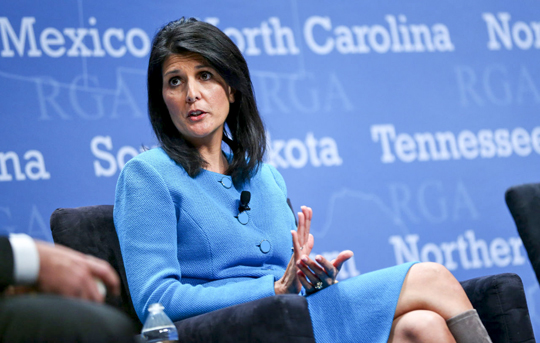New York, Mar 30: US' Permanent Representative to the United Nations Nikki Haley claimed on Wednesday that her mother was not allowed to be a judge in India because she was a woman.

Responding to a question regarding the role of women at a meeting of the Council on Foreign Relations, Haley said, "When you didn`t have a lot of education in India, my mother actually was able to go to law school. And she was actually put up to be one of the first female judges in India, but because of the situation with women she wasn`t allowed to sit on the bench."
"But how amazing for her to watch her daughter become governor of South Carolina and US ambassador to the UN," she added.
However, it is to be noted that women have been judges in India since at least 1937.
Haley`s parents, Ajit Singh and Raj Kaur Randhawa, reportedly emigrated from India in the 1960s. Raj Kaur Randhawa studied Law at the University of Delhi. But more than two decades earlier a woman, Anna Chandy, had become a judge in Travancore in pre-Independence India.
Chandy was promoted to District Judge in 1948, the year after Independence, and became a High Court judge in 1959. Chandy was able to sit on the bench and function as a judge all through -- years before Haley`s parents left India.
UN Ambassador is a cabinet-level position in the US and Haley is the first Indian-American to reach that position. A Republican, she was the elected Governor of South Carolina state in 2010.





Comments
Add new comment